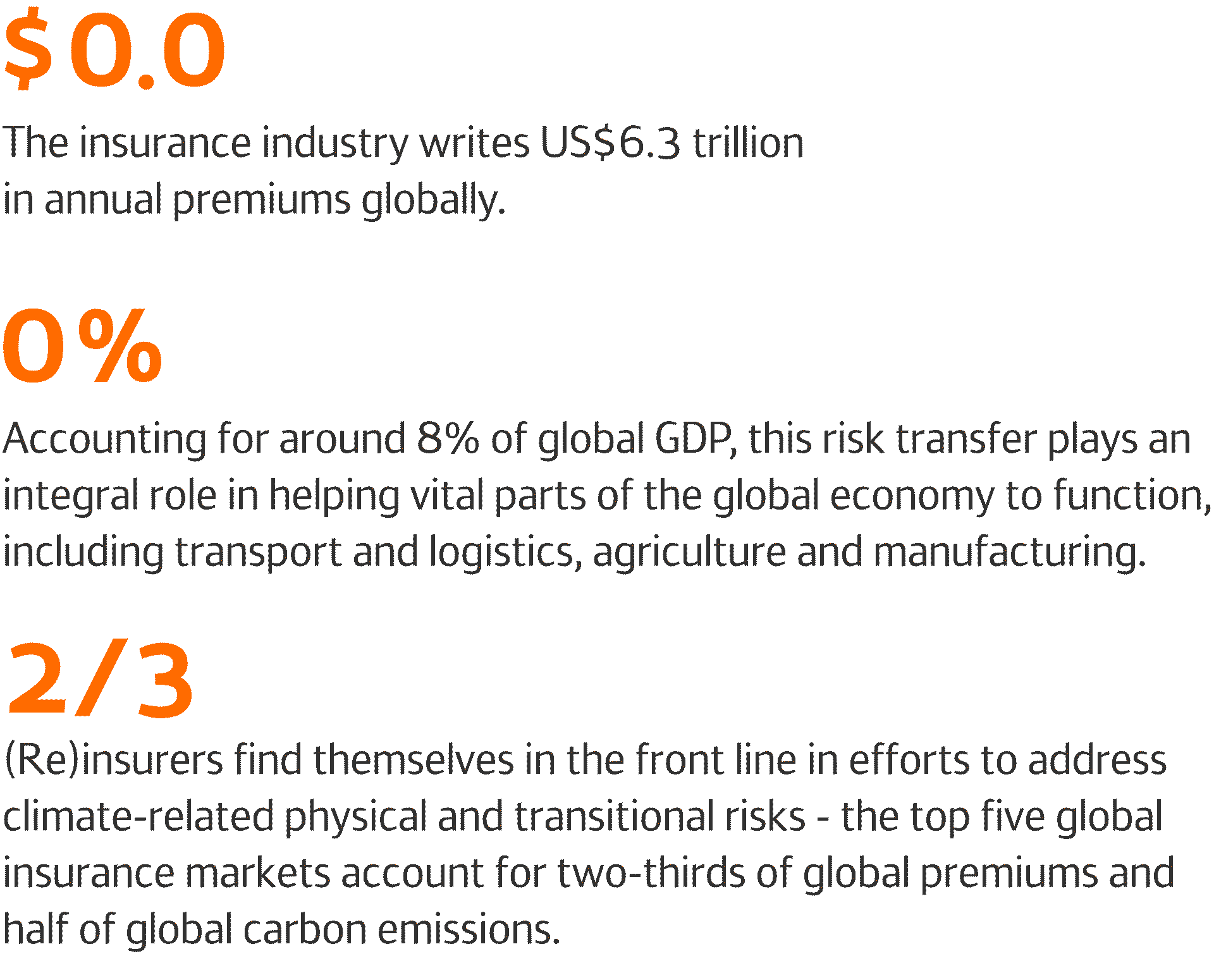
Our latest global report finds that the insurance industry has a central role in building wider understanding about climate-related risks and in mitigating against those risks. It canvasses the views of insurance industry experts and citizens from a wide range of markets to explore four key issues:
- The impact of climate change on insurers
- How to mobilise insurance markets to mitigate climate risks
- Value chain risk arising from climate risk
- The growing trend of climate litigation risk
Collaboration for change
Climate change presents a wide range of emerging risks which affect all businesses and households across all societies. The risk management approaches and underwriting practices of the global insurance industry are a major catalyst for managing those risks and driving positive change. However, (re)insurers cannot mitigate climate change alone. Collaboration between all actors, including governments, is vital. Summary The Intergovernmental Panel on Climate Change makes clear the time for action is now. To that end, the report outlines the climate action already being taken by (re)insurers. In addition, we look at what more the sector must do to make their own business value chains sustainable, and to help their clients to meet net zero.

Strategic recommendations
The report sets out six strategic recommendations for (re)insurers to integrate into their own value chain, as well as encourage their corporate clients to adopt them, to help address climate risks and reduce the likelihood of environmental liability claims made against them:

 Aviation
Aviation
 Banking and finance
Banking and finance
 Construction and engineering
Construction and engineering
 Insurance and reinsurance
Insurance and reinsurance
 Life sciences
Life sciences
 Shipping and international trade
Shipping and international trade
 Transport and logistics
Transport and logistics
 Argentina
Argentina
 Bermuda
Bermuda
 Chile
Chile
 Colombia
Colombia
 Denmark
Denmark
 France
France
 Hong Kong
Hong Kong
 Ireland
Ireland
 Mexico
Mexico
 New Zealand
New Zealand
 Peru
Peru
 Singapore
Singapore
 Spain
Spain
 United Kingdom
United Kingdom
 United States
United States
 Sultanate of Oman
Sultanate of Oman
 Israel
Israel